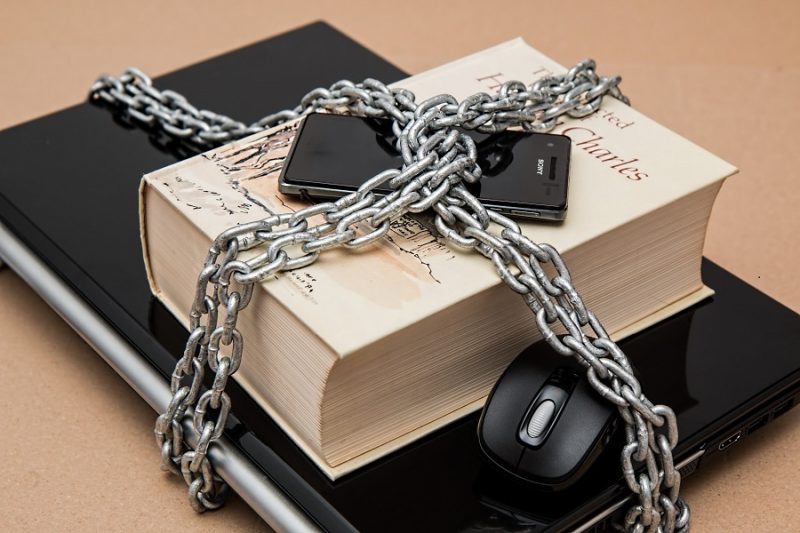Today, we live in a world of technology and social media. No one takes a single step without checking in at their social media profiles and whatnot. The internet has done us all a lot of favors by keeping us close and intimate even with all the distances in the world. It has provided us with answers and history that could have been long forgotten had it not been put forth on online forums in the past. Even the oldest symphony created still resides on YouTube for us to enjoy and dissect as per our desires.
The online world has truly made our life comfortable to the extent that it became a necessity rather than a luxury as time passed by. However, humans have always managed to find loopholes and thus online frauds became just as common as the comforts. While many complain that their dates didn’t turn out to be the same as they were in their display pictures, there are also those who end up bankrupt due to silly mistakes that led the perpetrator to come after them.
On the other hand, we all tend to ignore those facts and dangers until we fall victim to a cybercrime ourselves. You can never have more ideas and methods to protect your identity until only after you have been crucified by the cyber-devils yourselves. It is only then that you are able to see how the thief might have entered your online mansion. Your eyes trail across all those cookie crumbs scattered on your feed that led the thief to you. There is no point locking the doors now.
The funniest part is that, in reality, we all would go about locking our doors and getting the world’s best security systems and alarms to keep the bad people at bay but when it comes to social media, we would be posting every second of our lives on our feeds for people to know what and who we are up to. No matter how good of a person you are and how many followers you have, on the social media, there will always be people who would just not care about any of that and use your very personal data against you. They would always end up benefitting from your identity and the scary thing is that sometimes you might not even know about it until it is too late.
It isn’t completely your mistake that you have an outsider on the inside because most of the time companies use poor security systems and you end up being the scapegoats to their money management efforts. Thus, here are a few points to take into consideration before something happens to you or your loved ones, the first one being ensuring an internet connection with additional security features, and for the rest, keep reading:

Omit important personal information from social media
The first and foremost thing that you ought to do is omitting your personal information from the social media, at least, publically. If you do not have the mood to hide it all – just eliminate the important chunks of information that shouldn’t be a part of public knowledge. No one needs to know which school your sister or son goes to. Your friends already know that and the extras don’t matter!
Set your privacy settings thoroughly
There is a common trend of having everything “public” on social media these days. Don’t be that naïve, and set your privacy settings properly. It is okay to share memes and stuff with the world that isn’t directly yours with a nametag but if you publically share something of your interest, you are just giving your hunters a chance of initiating a conversation after having studied you. They are likely to talk about your favorite thing as their own to get you interested only to innocently drag you down the cold, dark alley.
Protect and strengthen your passwords
Please, don’t share your passwords with others just because you trust them – if you trust each other so much then better just make a single account. Otherwise, keep your password to yourself so that no one can keep a check on you. It’s good to trust one another but you never know who might get them to talk behind your back, right?
Two-Factor Authentication
Once you turn on this feature for your social media account; you will have an extra layer of protection over your information and account. This means that whenever you log in to your account, you will receive a passcode from the company. The passcode would be different each time you log in to maintain your security and thus no one other than you can log into your account without your permission.
Phone’s privacy settings
You don’t need to keep your GPS settings on. When with family, turn them off. This way you can protect your as well as your family’s whereabouts making it a tad bit more private. However, whenever you are traveling via UBER or with friends, it is best to keep the GPS on so you can be tracked down in case of an emergency.
Phishing emails
Be careful of the emails you get from unprotected sources. Spam emails are quite a common way to get ahold of your information these days. Just remember that no bank would ask you for your personal information via emails. If any of the emails you get does ask you for personal information – abort mission!
HTTP:// or https://, which one to choose?
Whenever you are adding any details for online payments, it is best to check if the website has an “s” at the end of its “HTTP”. The “s” here stands for ‘secure,’ if the website you are about to enter your details doesn’t have an ‘s’ it’s best to avoid buying anything.
Digital Footprinting
The best way to know which information of yours should be open to the public is by understanding your digital footprints. All you need to do is search yourself on the web browser, be it google chrome or any other. This way you will come across everything that others can get a hold of. Be careful!












Add Comment